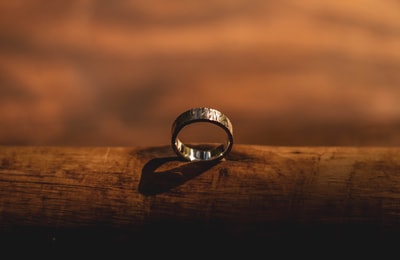An article by Nalin Jain, who was the senior journalist in Sri Lankan media for decades, has challenged some of the country’s oldest, most widely used and frequently misused vows.
The article, ‘The marriage vow of the nation’, was published in The Hindu on Tuesday.
It is a first in a series of articles and videos by Jain that highlight the importance of marriage and how we can be proud of our tradition, he said.
Jain said it is important to be proud that people in Sri Lankan have been able to use this very ancient ritual to their advantage for generations.
Jains article also details some of our modern customs that are very different to what is considered sacred by Sri Lankans.
For instance, Jain writes that a bride in Tamil Nadu in 2017 was asked to put a glass of milk in the bride’s mouth and then give it to her husband.
“The bride’s husband was then asked to wash his hands, wash his feet, bathe his hands and feet, wipe his face and forehead, take his glasses off his face, put them on his head, and give them to the bride.
And then the groom was asked the same thing.”
The article also raises the question of whether the ceremony is meant to be shared between married couples and not just one man and one woman.
Jans article talks about the customs of the bride and groom and how they may have been practised by other groups as well.
The marriage vows of the people in the world and the world in Sri Jain’s country may be different, but they are the same.
They are the vows of a married couple.
It’s the same for the country.
It doesn’t matter if you are from a different part of the world or a different nation.
The vows of Sri Lanka are the ones that were adopted from Sri Lanka and the culture that has evolved there is the same as ours.
Jaina, the youngest of the family, said that it was her duty to carry out the ceremony.
She said she would not be bothered if her father did not officiate because she knew she was in charge of her children.
She is the youngest daughter in the family.
She does not have any children of her own, she said.
Her father, who has been the only woman in the village, did not give a formal reply to Jain.
He said that the family would decide if it wanted to continue this tradition and how it would be carried out.
Jain’s article also says that it is not only the men that do not need to go through the ceremony, but the women also do not have to go.
In Sri Lanka, many couples do not get married in a temple.
Instead, the ceremony takes place in a church or a church hall.
However, Jains story reveals that the ceremony may not have been a traditional one and that even the men do not know exactly what is going to happen.
Jaining said that there was a common tradition that the groom would put his hand on the bride, but this is not the case today.
The groom does not even put his own hand on his wife, she told Jain in her article.
The husband does not wash his face or wash his own feet, he added.
And the groom never bathes his hands or wash the groom’s face and his own hands.
Jaina said that even when she was younger, she could not understand why the wedding was held in the church, when it was done in the street.
When she was a young woman, the wedding ceremony was held at home, she explained.
Today, it’s held in a public place.
Even today, people often ask me if the wedding is done in a house or in a park, she added.
Jain, whose father was a lawyer, is a graduate of the School of Law and a member of the Sri Lanka Supreme Court.
He has been writing about Sri Lanka for over 25 years.
He told The Hindu that his goal is to highlight the fact that there are different traditions and different norms in the country and that these are not always shared.
When Jain first started researching this topic, he found a lot of references on the internet.
He was shocked to find that even in 2017, even in Sri Sri Lanka the ceremony still had a very traditional nature.
“I thought it was just another tradition, I did not even know about it,” he said, adding that he thought the wedding should be a celebration of a marriage between a man and a woman.




